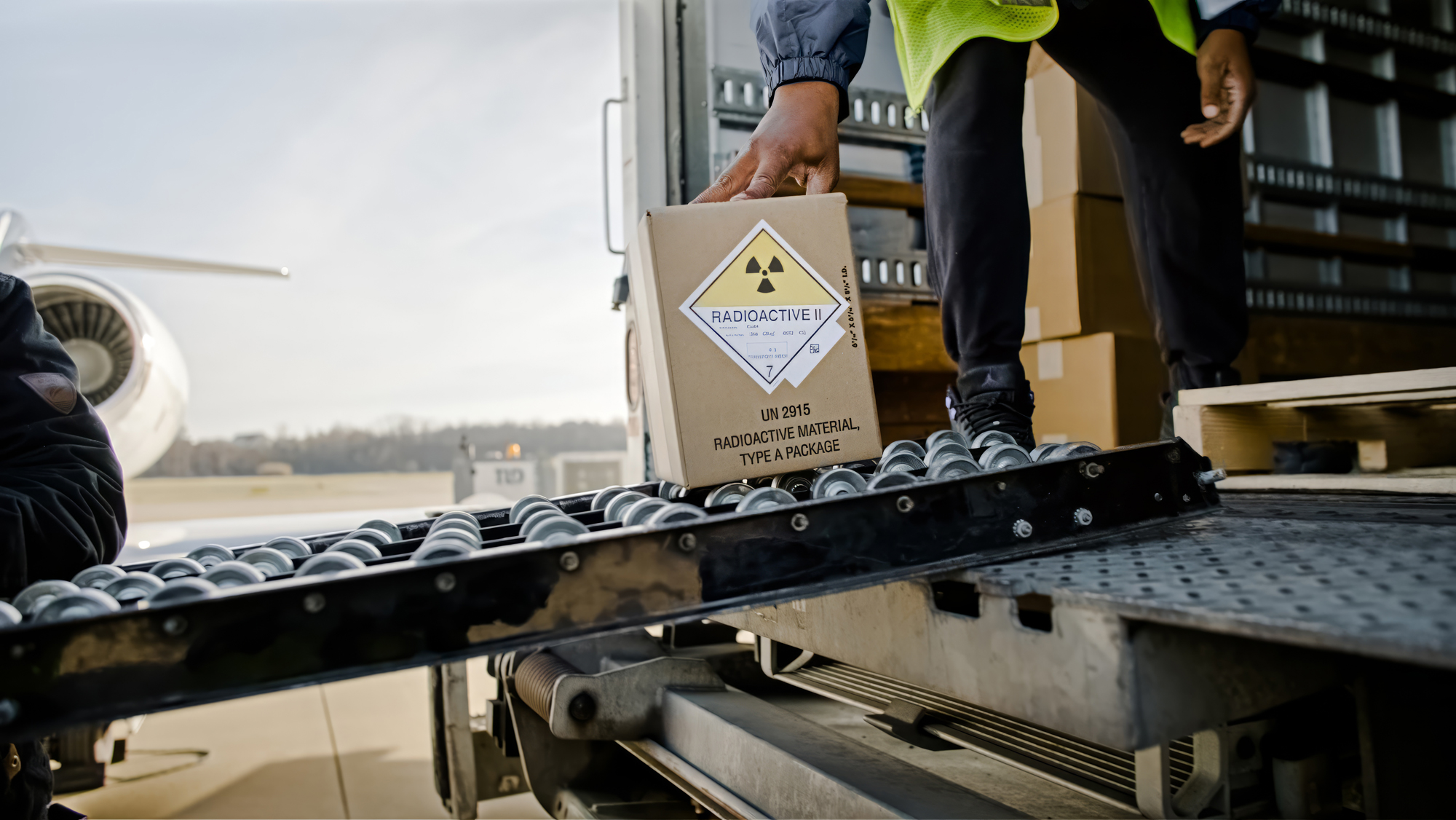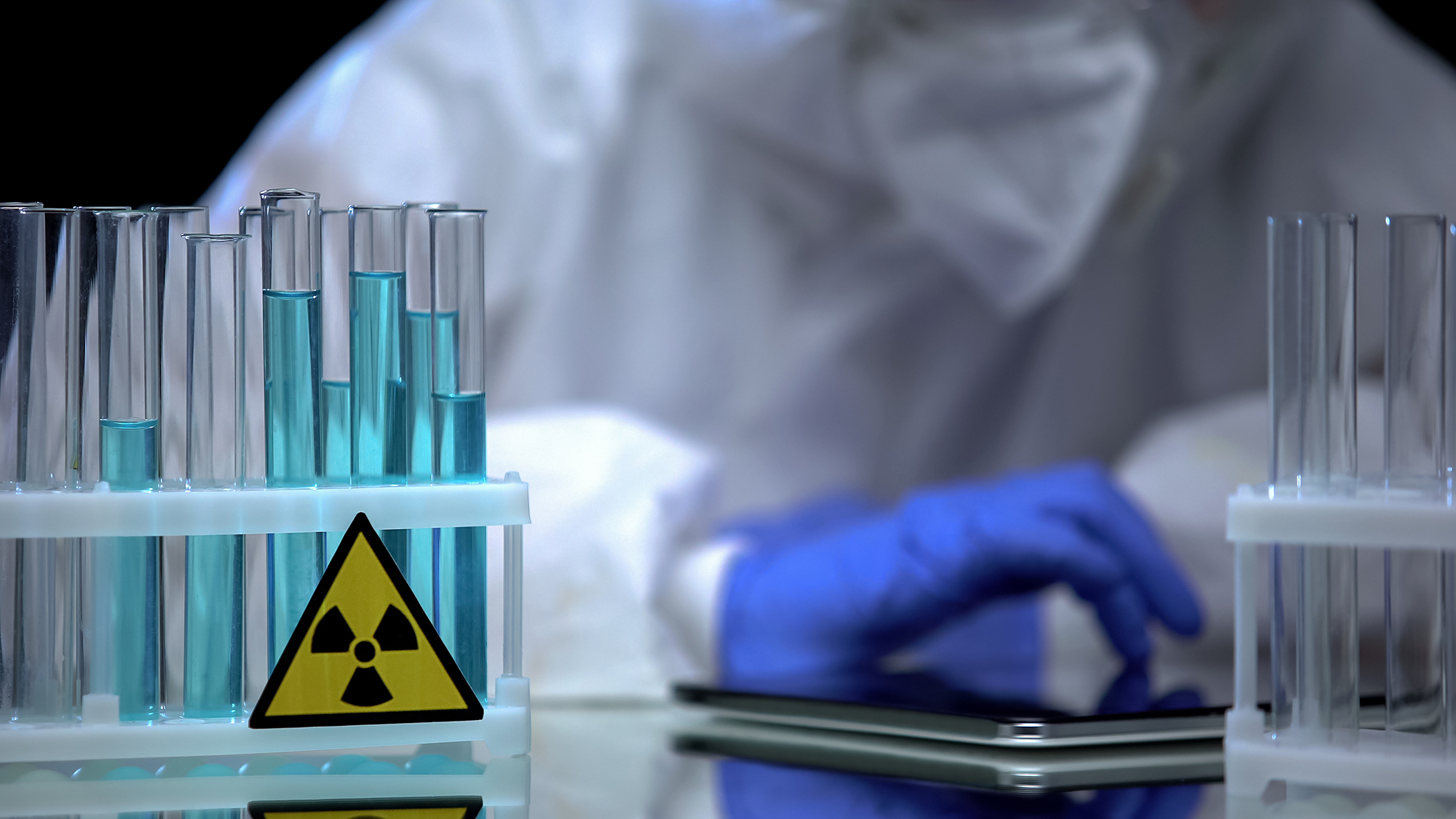Radiopharmacies in the UK have a unique set of supply chain challenges, from the sourcing of raw materials to the transport of unstable isotopes, all before they can even begin the complex process of producing vital radiopharmaceuticals.
The recent Autumn Meeting of the British Nuclear Medicine Society (BNMS) at The Oval, London, brought this issue further into focus, with eye-opening presentations from the likes of Neil Heraghty (King’s College Hospital NHS Foundation Trust) and Scott Edmonds (Guys and St. Thomas Hospital NHS Foundation Trust).
We explore some of the topics discussed, including the UK’s reliance on oversees raw materials and the Project ARTHUR proposal to secure a more reliable domestic supply of isotopes.
The just-in-time supply chain
Due to the short half-lives of radioisotopes, radiopharmacies are forced to adopt a just-in-time (JIT) supply chain, where all materials and equipment must arrive at the perfect moment in order to proceed to the next stage of the complex chain in producing radiopharmaceuticals for patients. Unlike other industries that apply the JIT model however, radiopharmacies are unable to stockpile these radioactive materials due to their rapid decay. This extreme time-sensitivity leaves their supply chain very vulnerable to delays and logistical hurdles that could affect the integrity of the end result: life-saving drugs used in the fight against cancer.
However, the first problem for UK radiopharmacies starts at source: the UK manufactures very little of the raw material required. While there is a domestic network of cyclotrons, over 80% of raw material is currently supplied from outside the UK.
Reliance on overseas reactors
The UK relies on a consistent supply of raw material from oversees, mainly from three European reactors: HFR in the Netherlands, BR2 in Belgium and the MARIA reactor in Poland. Issues therefore inevitably occur when these reactors require maintenance – the HFR reactor was taken offline for an extended period in 2022 due to a “technical failure” and a leak in the cooling system. Unfortunately, this also coincided with maintenance work being carried out on the other two reactors. Current capacity can just about cope with two plants down for maintenance, but pausing operation of all three causes major issues.
This regular maintenance is necessary due to the fact that 5 out of the 6 primary power stations in Europe are over 50 years old, and increasingly require upkeep to continue producing the volume of materials required. Demand is also increasing, placing compounded stress on these aging reactors.
There are new projects underway to replace these, with several major reactor and accelerator projects under construction in the US, Belgium, Canada, France and Argentina. The current core power stations have also had their lifespan extended for around 10 years, but there will certainly be a crossover period that may cause problems in regular and reliable isotope supply, for the UK and beyond.

5 out of 6 of the primary power stations in Europe are over 50 years old. Source: OECD: ‘Current Trends in the Supply and Utilisation of Medical Radioisotopes’ (September 2025).
Project ARTHUR and domestic proposals
By building a dedicated domestic nuclear reactor, the UK would not only reduce its reliance on importing raw materials from oversees but would also have priority access to the radioisotopes it needs to serve an increasing demand in the UK.
One example is Project ARTHUR, the Welsh Government’s 2023 proposal to use a research reactor to produce medical radioisotopes, such as the widely used Technetium-99m (Tc-99m) and Molybdenum-99 (Mo-99). The proposed design is based on the Australian OPAL model and had a technical feasibility study approved in early 2023. This proposal is currently sat within the mechanisms of the UK Government, with a cost projection of approx. £400milllion.
Transporting radioisotopes cross-border
Moving radioisotopes requires specialist logistics companies like Life Couriers, experts in radioactive material transport. When crossing international borders, these transports become even more complex. In addition to the hazards of carrying radioactive materials, issues at customs checkpoints or any delays to the journey directly affects the isotopes’ ever-decreasing potency.
Life Couriers’ global radiopharma logistics network has alleviated this stress on radiopharmacies and the wider nuclear medicine industry by providing seamless movement of isotopes across countries and continents. This solution enables UK radiopharmacies to continue importing raw materials until a reliable domestic source is established, if and when that becomes possible.

Life Couriers are the no. 1 providers of Radiopharma Logistics globally, with over 780,000 nuclear medicine deliveries completed in 2024.
A dedicated UK logistics network
The UK also requires a domestic transport network – one that can carry radioisotopes, equipment and radiopharmaceuticals either from international airports to site, or between radiopharmacies and nuclear medicine departments.
In May 2025, Life Couriers launched a dedicated UK Radiopharma Logistics network, building on experience gained from over 45 years of delivering these vital goods across the US and Europe.
Delivering hope
Whether the UK continues to rely on imports for its radioisotope supply, or if it chooses to construct a domestic reactor, the challenges of this unique supply chain remain. Radiopharmacies will always require a reliable, robust and safe transport solution to ensure that patients in the UK can receive life-saving cancer diagnosis and treatment.
At Life Couriers, we’re proud to support UK radiopharmacies in delivering hope to patients, their families, and their loved ones.
Further reading
To speak to our team about specialist radiopharmacy transport, contact us here.
For more information on our Radiopharma Logistics services, visit this page.
